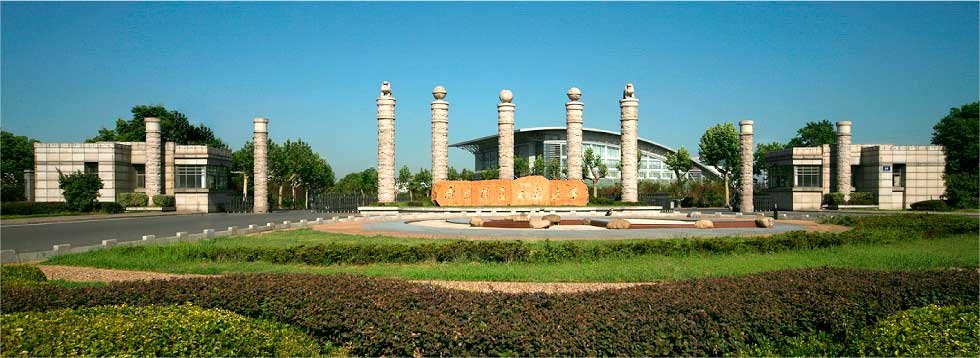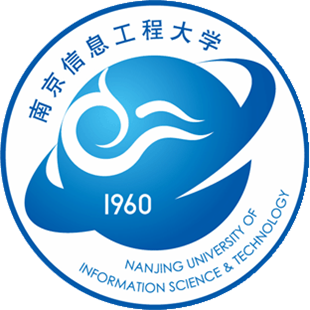𝒀𝒐𝒖𝒓 𝑮𝒂𝒕𝒆𝒘𝒂𝒚 𝒕𝒐 𝑮𝒍𝒐𝒃𝒂𝒍 𝑳𝒆𝒂𝒓𝒏𝒊𝒏𝒈
About of University
📖 Introduction
Nanjing University of Information Science and Technology, colloquially Nan Xin Da, is a double first-class discipline university located in the northern part of Nanjing city, China. It is well known for meteorology research and education.
🏛️ About Nanjing University of Information Science and Technology (NUIST)
Nanjing University of Information Science and Technology (NUIST), also known as Nan Xin Da was founded in 1960 by the Jiangsu Provincial People’s Government, the Ministry of Education of China, the China Meteorological Administration (CMA) and the State Oceanic Administration. Known until 2004 as the Meteorology College of Nanjing University, it is the oldest meteorology science higher learning institution in China.
Located on the north bank of the River Yangtse, in the heart of the Industrial Zone of Nanjing, on 140 hectares of campus, NUIST has over 30,000 undergraduates, around 1,500 of whom are international students. There are more than 1,500 full-time faculty staff members over 22 schools and colleges.
Today, the university is on the list of China’s national "Double First-rate" universities, offering degree programmes in areas including management, economics, law, agriculture, and humanities. The discipline of atmospheric science ranked as the best in China in an evaluation conducted by the Ministry of Education in China. Geoscience, engineering and computer science are also rated particularly highly.
Its motto translates as “promotion of virtue, investigation of nature, cultivation of self and construction of society”.
NUIST is one of two universities to offer the Chinese-Government Scholarship-WMO program, a scholarship offered to students of meteorology or related fields. The school has a World Meteorological Organization Regional Training Centre, which has trained more than 2,400 senior meteorological and hydrological technicians and managers from 140 regions.
The university has established cooperative relationships with 48 universities and colleges in 15 other countries, including Yale University, the University of Manchester and the University of Toronto.
About Nanjing
Nanjing is the capital city of Jiangsu----one of the most developed provinces of China. It is located in the Yangtze River Delta, with rapid and convenient transportation to the city of Beijing, Shanghai, Suzhou, and Hangzhou. Nanjing is a modern city with energetic economics. Pillar industries such as high-tech electronic information and the auto industry have built a complete industrial system. Nanjing is also a city of excellent specialists for scientific education. As one of the four scientific research education cities in the country, Nanjing has 41 higher universities with over 600,000 students.
Nanjing is an ecological city with a comfortable human-habitat environment. Since the implementation of the construction---- ”Green Nanjing” in 2003, Nanjing has fastened the speed of urban greening.
Nanjing is a civilized city with open minds. At present, 81 top 500 corporations have made investments in Nanjing. Nanjing is a safe city with good public security and sound prevention and control system.
Nanjing belongs to the north subtropical monsoon climate zone with four seasons, plenty of sunshine, and rains. The average temperature of a year is 17.8℃.
Programs
Accommodation
If accommodation on campus is important to you we advise you to arrive a few days before so you can try to register.
Accommodation fee: 1500 RMB
Admissions Process
🔔
3 Steps to Apply to a Chinese
University
Required documents for application:
- Passport
- Graduation certificate
- Passport size photo
❓ Entry Requirements
The minimum age is 18 and the maximum age is 65.
You don’t need to have studied Chinese before.
Minimum education level: High School.
1st Class Scholarship: Tuition and accommodation fee waiver.
2nd Class Scholarship: Tuition Waiver.
To apply in Nanjing University of Information Science and Technology applicants must:
1. Be a citizen of a country other than
the People’s Republic of China;
2. Be
a bachelor’s degree holder under the age of 35;
3. Be in good health;
4. Abide by the laws and decrees of the
Chinese government and the regulations of the school.
- Have the copy of passport photo page.
Applicant who is already in China, shall submit the copy of the visa page or
the copy of Residence Permit.
- Submit Highest degree certificate.
Prospective degree recipients shall provide an official pre-graduation
certificate showing their student status and stating expected graduation date
and later submit the degree certificate to NUIST after admission. Documents in
languages other than Chinese or English must be attached with notarized Chinese
or English translations.
- Submit Academic transcripts. Transcripts in
languages other than Chinese or English must be attached with notarized Chinese
or English translations.
- Submit Two recommendation letters signed by
a professor or an associate professor. Professors’ signature, contact phone
number and email address must be put on the letter.
- Submit A Study Plan or Research Proposal in
Chinese or English.
- Submit Published academic papers or other
academic achievements.
- For Chinese-taught programs:
applicants shall present a copy of certificate of HSK Band 5 or above.
- For English-taught programs: applicants from non-English speaking countries shall present a copy of an English proficiency certificate, such as TOEFL 80 or above/ IELTS 6 or above, or other official English proficiency certificates acceptable.
Meet Your Consultant



